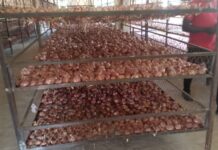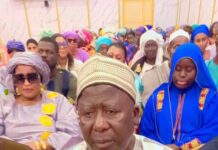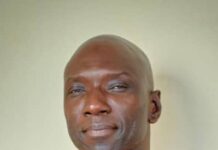By Famara Fofana
So, ever since my colleagues at Kerr Fatou dropped their much-vaunted documentary ANM Ousainou DARBOE: A Legacy of Selflessness, Kindness and Tenacity, there continues to be a potpourri of reactions, especially on social media. The production has led to some noticeable endorsements, words of micro-kindness and in some instances mimicry which has also become a part of our body politics.
In movies, they say, our eyes leave our bodies and wander through the camera, reflecting us as a modified form of reality. As Clare Patey of The Empathy Museum sums it, storytelling can capture people’s attention, and hopefully provoke them to think differently about an issue – except that the one being thought of differently by some in the wake of the film aint an issue but a human being that seemed to be misunderstood. Whether that’s deliberate or not, I wouldn’t know.
For the purpose of this review, I would limit my analysis to three key ingredients of Persuasive Communication or Aristotle’s Persuasive Appeals as could be deduced from the documentary. These techniques represented by Greek words are:
1. Logos – Simply meaning appeal to logic is one of the key elements employed by the documentary makers. It implies the use of rationality to persuade an audience. And in the context of the Darboe film, this has been used to good effect through the testimonials from people who knew him inside out- from childhood, days in Banjul under the guardianship of PS Njie to how he was tapped to become the UDP supremo. Here – his education, deep Islamic orientation and sacrifice for others make it logical for the audience to hear his story and get persuaded for those harboring their misgivings about him.
2. Pathos – The strong emotional resonance of the film as can be alluded to both UDP and non-UDP supporters is arguably its biggest selling point. That power to stimulate minds comes out prominently in the part Darboe led a handful of old men and other militants to West Field to demand the late Solo Sandeng’s body (dead or alive). Their manhandling at the protest site and their eventual incarceration at Mile 2 lays bare the virtue of sacrifice.
3. Ethos – This has to do with integrity or character and one’s set of moral beliefs. And in the Kerr Fatou documentary, Darboe’s traits of obedience, honesty and sharing and caring are a reoccurring theme, especially amidst questions of moral quandary dogging most African leaders. The documentary, based on David Bordwell’s IMPLICIT LEVEL of UNDERSTANDING MEANING, seems to be debunking that ‘tribalist’ image that the UDP as a party for far too long couldn’t clearly dismantle. Consciously or subconsciously, it takes a huge swipe at COGNITIVE ILLUSSION that some of UDP opponents have been using as a stick against them.
Finally, the blend of montage in creating those sequences, archival footage, powerful voice over makes the documentary what it is. The location shooting (Bantaba, Karantaa and Dobo Kemo’s room) brings greater realism to the story whilst the monochromatic images (black- and -white) adds a depth of nostalgia to the film stock.
Famara Fofana is a freelance journalist, author and public affairs analyst. He is pursuing a master’s degree in Media and Communications Studies at the Graduate School of Social Sciences, Ankara University, Turkey.






